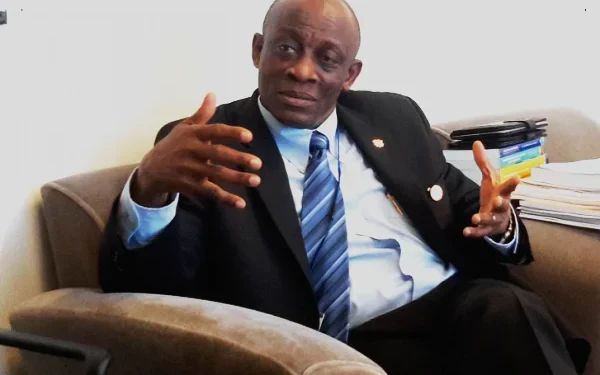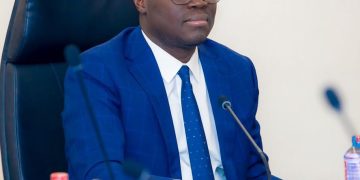Gov’t Replenishing Sinking and Stabilisation Funds to Guard Against Future Economic Shocks – Seth Terkper
Economic Advisor to President John Mahama and former Finance Minister, Seth Terkper, says the current administration is instituting long-term financial buffers aimed at preventing a recurrence of Ghana’s recent economic difficulties.
Speaking on JoyNews’ PM Express, Mr Terkper disclosed that government is actively replenishing the Sinking and Stabilisation Funds as part of measures to build resilience against future economic shocks.
“We are populating — and I’m quoting the Finance Minister — we are populating the sinking fund. We are populating the stabilisation fund,” he stated.
The former Finance Minister noted that the ongoing fiscal interventions form part of broader structural reforms intended to break the economy’s persistent boom-and-bust cycles.
“It takes hard work, strategising, and it takes learning from experience and the hiccups that have happened in the last few years,” he said. “Seeing an economy getting out of HIPC and all other economic turmoils, and then seeing some stability — that’s a dramatic change.”
Mr Terkper indicated that Ghana is gradually reversing the downward economic trends that emerged from years of fiscal stress, referencing past challenges such as the implementation of the Single Spine Salary Structure, the accumulation of arrears, and rising public debt.
“What you are seeing now is a reversal, a gradual reversal of those trends,” he added.
He underscored the need to maintain focus on long-term stability rather than short-term political or economic gains. Citing recent speeches by President Mahama and the Finance Minister, Mr Terkper stressed that while short-term relief is important, it should not distract from the administration’s medium-term objectives.
“There was always the need to get some traction in the short term. But the medium term was never lost,” he emphasised.
Mr Terkper also revealed that new fiscal rules are being introduced to safeguard discipline, including the setting of debt and deficit ceilings and floors to guide medium-term fiscal policy.
“These are encouraging gains, but the real focus is building a framework for sustainability,” he stated.
He warned against complacency, asserting that past successes must not lead to a relaxed approach toward economic management.
“In as much as we have had these successes, history tells us not to be complacent,” he cautioned.
Concluding, Mr Terkper maintained that Ghana’s economic narrative should prioritise long-term resilience and discipline.
“I don’t think the narrative has been just on short-term successes. It should be about long-term stability — that’s the only way,” he affirmed.








